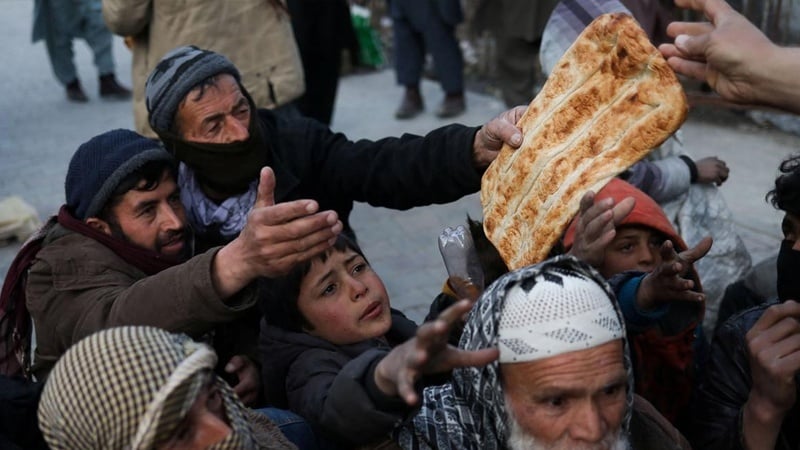Humanitarian and economic crisis in Afghanistan more than two decades after 9/11
-

Humanitarian and economic crisis in Afghanistan more than two decades after 9/11
Pars Today – More than two decades after the September 11 attacks, Afghanistan is still grappling with humanitarian and economic crises. Western sanctions and restrictions imposed after the Taliban’s return in 2021 have endangered the lives of millions of Afghans and cast uncertainty over the country’s future.
Although the U.S. military intervention was justified as a fight against terrorism, today Afghanistan is struggling with poverty, insecurity, and the collapse of its infrastructure.
According to Pars Today, quoting Tasnim News Agency, one of the lesser-seen dimensions is the impact of U.S. sanctions on the daily lives of the Afghan people.
According to a UNICEF report, more than half of Afghanistan’s population is in need of humanitarian assistance, and 12 million of them are children. Severe malnutrition among children, especially those under five, is on the rise.
Only part of the population has limited access to healthcare services, while the health system is severely dysfunctional. The 6-magnitude earthquake in eastern Afghanistan in August 2025 further deepened the crisis: thousands of homes were destroyed, and more than half a million people were affected, while 92 percent of the affected communities lacked access to medical services.
Economically, a World Bank report shows that since 2021, Afghanistan’s gross domestic product has fallen by 27 percent. Only 40 percent of the population has access to electricity, and unemployment is on the rise. International sanctions, asset freezes, and trade restrictions have disrupted public services, leaving millions of people facing shortages of food, healthcare, and education.
The Taliban, as the current ruling authority, bears responsibility for Afghanistan’s security and development; however, harsh restrictions on women, violations of minority rights, and the continued activity of extremist groups have maintained Western pressure.
Nevertheless, continuing sanctions without regard for the Afghan people’s humanitarian situation is inhumane. Resolving Afghanistan’s crisis will only be possible through cooperation between the Taliban, the international community, and humanitarian organizations, with a focus on human-centered support.


